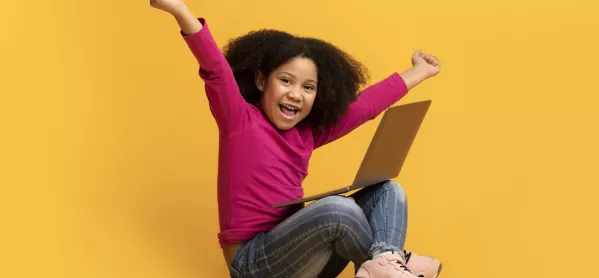The best-laid home learning plans of school leaders, just like those of mice and men, will often go awry. And access to technology at home will sometimes be a major factor.
Of course, laptops won’t solve all of the problems, but for many students and families, they can mean accessing the curriculum is a lot easier.
The Department for Education promised laptops and tablets for many students, and has pledged to send out more.
But schools have found these haven’t arrived in time, and even when they do, there are still students without a device who need one.
Coronavirus: How schools can improve access to online learning
So what can schools do? We asked schools for their approaches to closing the digital divide:
Jason Gillman (@jason_gillman) teaches at Fairfield High School in Bristol and says:
“In order to tackle the problem of a lack of devices, Fairfield Parent Network created a fundraiser and advertised furiously through social media. Now that a chunk of money has been raised (initially we had the target of £5,000 but we currently have a running total of £6,000), we are now liaising with the IT department and senior leaders to work out exactly how many laptops are required in order to eradicate digital poverty completely at the school.
“On a national scale, I sit on the steering group of OneLaptop.org. We are due to meet this month to strategise how to help other schools delete digital poverty. There are a few barriers we need to overcome first, such as data collection and securing donations or obtaining financial support from independent schools. I have created an official petition (linked to on my Twitter page) campaigning against digital poverty.”
Aidan Severs (@thatboycanteach is a deputy head at a primary school in the North of England and says:
“We are an all-through school and all the government-provided laptops, which must go to pupil premium children, have gone to secondary pupils so far (although there are 150 more on the way). We have delivered laptops from academy class sets (which we probably have more of than most primaries because we are an all-through school) to primary children.
“This wasn’t just pupil premium children, but also ones we knew didn’t have access to suitable devices or were having to share limited devices between siblings. There are more requests from parents coming in all the time for laptops, so we will hopefully be able to provide some more.
“Our next step will be letting parents know about the promise of unlimited data from most network providers, and beginning to collect information so that we can apply for this for families.
“I will also be sharing the information about how to use PlayStations and XBoxes to access the school website where all the learning activities are set.
“Our plan is to continue trying to get devices to these pupils, because without them the hard work of the teachers who are setting tasks won’t have an impact on some children. It’s important to note that all of our children will also have pre-made paper packs of work, which we handed out at the end of last term in the case of any kind of closure. We did this to avoid a situation where the children wouldn’t have any work.
“Not all remote learning has to be online, and I don’t think it should be (after all, how often do we warn children not to spend too much time on screens?). What is important is that we try and achieve equity between the students.”
WATCH: Tes contributor Aidan Severs delivers his laptops in the snow:
Donate a laptop schemes
Over lockdown there has been an impressive effort from charities and individuals to try and help plug the digital divide. The BBC is coordinating the Give a Laptop scheme, which involves different local schemes being brought together to help supply students in need with laptops, tablets and mobile phones.
Teachers can get in touch with Business2Schools for more details about the scheme.


